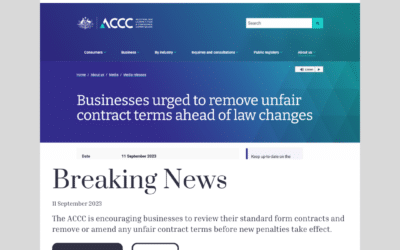
Your intellectual property (“IP”) is a significant asset and is important for your business.
So here, by reading this article, you can understand the legal rights available in terms of intellectual property law and whether or not you are searching for an article, we believe this article will help you.
Some people can get in a rush to get their business up-and-running and get into trouble if they have not fully protected their intellectual property, as the great Albert Einstein said
“Try not to become a man [and woman] of success. Rather become a man [and woman] of value.”
IP itself comes with great value and your IP needs the best levels of legal protection for you and your business.
What Is Intellectual Property
Intellectual Property is a smooth concept and an ever developing part of today’s business climate.
Australia’s regulator for intellectual property says:
“Intellectual property (IP) is the property of your mind or proprietary knowledge. Basically, the productive new ideas you create. It can be an invention, trade mark, design, brand, or the application of your idea.”[1]
There are some best ways to protect your intellectual property in Australia, including:
- Under Commonwealth legislation;
- Common law, this is the law developed by judges’ decisions; and
- Contractual rights for example IP licensing agreements.
Remember, your IP is essentially your property created in a heap of different ways like when you design your website, the IP in your advertisements and marketing, your business and product names, your brand names and logos and much more.
What Are The Different Kinds Of IP
There are different kinds of IP and different rights that apply. To give you some clearer understanding about your IP rights it might help you to understand these:
First up, you can get IP rights in your trademarks.
Trademarks are legally recognised under the Trade Marks Act (Cth) 1995 and by case law.
A Trademark is “A sign used or intended to be used to distinguish goods or services dealt with or provided in the course of trade by a person from goods or services so dealt with or provided by any other person.” [2]
Under the Trade Marks Act, a person infringes your registered trade mark rights if they use a sign, logo or word that is substantially identical with, or deceptively similar to your registered trade mark.
To establish a common law trademark you need to show that your trademark has been used, for example as a brand name or in advertising, so strongly in ways that it is seen as recognisable as being a part of your business or the goods and services you provide.
We can help you apply to register your trademark with IP Australia. Some steps involved in the trademark registration process include:
- Your trademark application is submitted
- Your trademark application is considered by IP Australia. At this stage the application could be rejected for a number of legal reasons
- If your trademark is accepted, there is an opportunity for others to make an opposition, so be careful about this.
Remember, once your trademark has been taken care of, you can then as the owner of the trademark exclusively use your brand name and authorise others to use the registered trademark, you have an asset in the goodwill of the brand and you can protect your trademark from infringements.
It might assist you to remember that Patents are another form of IP. These are essentially the intellectual property rights applicable for your inventions and innovative ideas and concepts.
Your Designs are also considered to be valuable IP. These are your IP rights arising from the design of particular shapes, patterns, frameworks, configurations and products.
Next, how about the IP arising from the original form of expression you ask?
Well that is where Copyright comes into play to protect your IP rights of your original expression of an idea. The essence of copyright is to encourage creation and publication.
Copyright IP comes from your property such as your written content, performance, music and your artwork as good examples. Copyright IP also arises in the context of sound recordings, films and broadcasts.
Indigenous Cultural and Intellectual Property (ICIP)
There is a special interest and need for the protection and understanding of the IP our mobs have to protect traditional arts, stories, dance, language and culture, this is known as ICIP. It is related to notions of self determination in terms of the focus towards rights of Indigenous Peoples to protect traditional knowledge and sacred cultural ICIP.
Notably, ICIP is the IP which belongs collectively to an entire community or community group from the thousands of years in which our Indigenous Peoples and our cultures have existed.
ICIP does come up in many different forms. Some of these include written works, music, traditional dance, ceremonies, language, sacred sites and burial grounds, plus of course much more.
The mainstream IP laws in Australia fall short of protecting ICIP because of the ownership and individualised stance taken, whereas ICIP is formed upon traditional knowledge, culture and practices collectively.
How To Protect Your Confidential Information
It is important for you to protect the IP which arises from your confidential information. This is because information itself is valuable information. Some of the best ways to protect your confidential information from disclosure is by legal agreements, contracts and other forms of law.
Getting your licence agreements, non disclosure agreements and contractual clauses are particularly relevant and useful in this way of protecting your IP.
So, in summary it is important to have a confidentiality agreement before engaging in confidential discussions this is because:
- Protect your intellectual property; and
- Your intellectual property is valuable and it’s a significant business asset that has taken time and resources to establish, maintain and develop.
Remember the kinds of intellectual property you might need to best protect include your business name, your branding, your logo, your website and its content, your domain name, any databases and confidential information, ideas and inventions you might have developed plus more.
The main ways to protect your intellectual property include, legal protections and registration requirements with IP Australia, enforcing your common law rights and getting the best legal documents and agreements you possible can. For online solutions you can check out www.boostlegaltemplates.com.au
The IP Australia website is also helpful and has more information for you so you can know some more about the best legal ways to protect your intellectual property and register your rights, including in respect of your Trademarks, patents and design rights, plus more.
What to do if you are accused of IP infringement
Remember, you also need to be sure that you don’t breach another person’s intellectual property rights, otherwise you could receive a legal letter of demand, cease and desist and other types of legal action against you and your business.
It’s important that if you are ever accused of infringing another person or organisation’s IP, you should speak with a lawyer to get legal advice as soon as possible & stop the allegedly infringing activity as soon as possible if the allegation against you has merit.
Summary and Intellectual Property Law
The aim of this article has been to give some of the best legal understanding so that you can take the steps necessary to protect your intellectual property. The goal is to give you an insight into the intellectual property laws in Australia and hopefully you will end up with some of the principal intellectual property rights registered.
If you have any questions, or if your intellectual property rights have been breached, please feel free to contact us. Our team will inform you about the best ways to enforce copyright compliance in the form of your intellectual property rights.
Photo by Cristina Gottardi on Unsplash
[1] See: https://www.ipaustralia.gov.au/understanding-ip
[2] Section 17 Trade Marks Act (Cth) 1995
Important disclaimer: The material contained in this publication is of a general nature only and it is not, nor is intended to be legal advice. If you wish to take any action based on the content of this publication, we recommend that you seek professional legal advice.
Book Your Appointment
Related Articles
Privilege Under Pressure: Insights from the Optus Case
A Shifting Legal Landscape Today's businesses are under constant threat from cyber attacks, making it increasingly important to understand how they can legally protect their private conversations. Legal professional privilege is a fundamental rule that keeps the...
Ticketek’s $500K Fine: A Legal Perspective on Email Compliance
In the constantly changing world of digital communication, email marketing remains a vital way for businesses to connect with their audience. However, it's crucial to manage this tool with care and attention to legal obligations. The Australian Communications and...
Navigating the Waters of Unfair Contract Terms in Australia
As a small business owner in Australia, you might have come across the recent updates to the Australian Consumer Law regarding unfair contract terms. If it seems a bit complex, don't worry! We're here to simplify it for you in clear terms. Unfair Contract...




